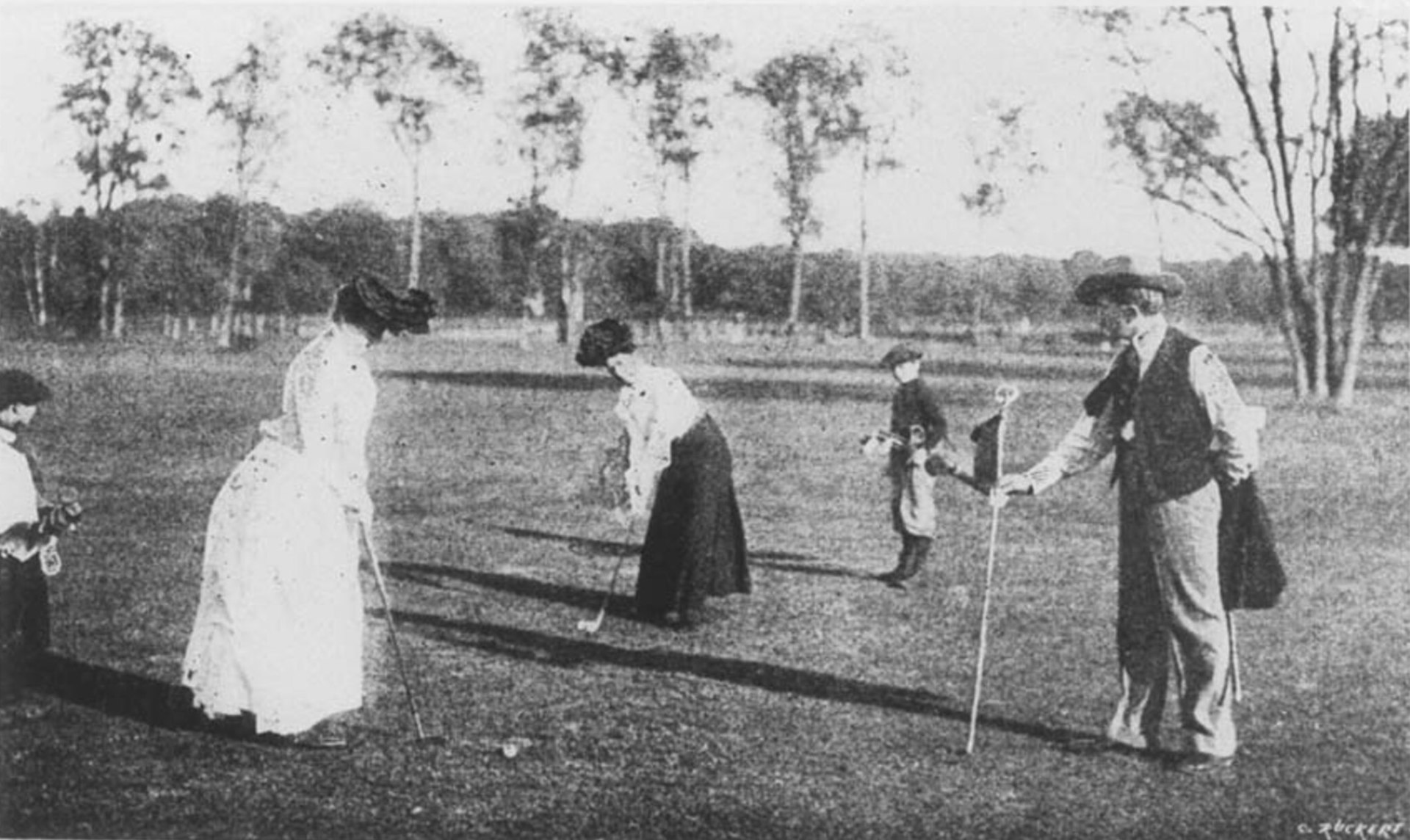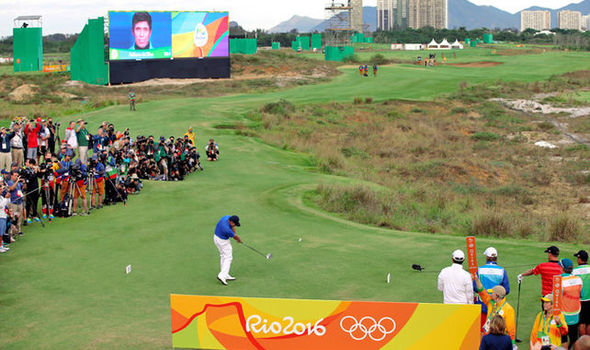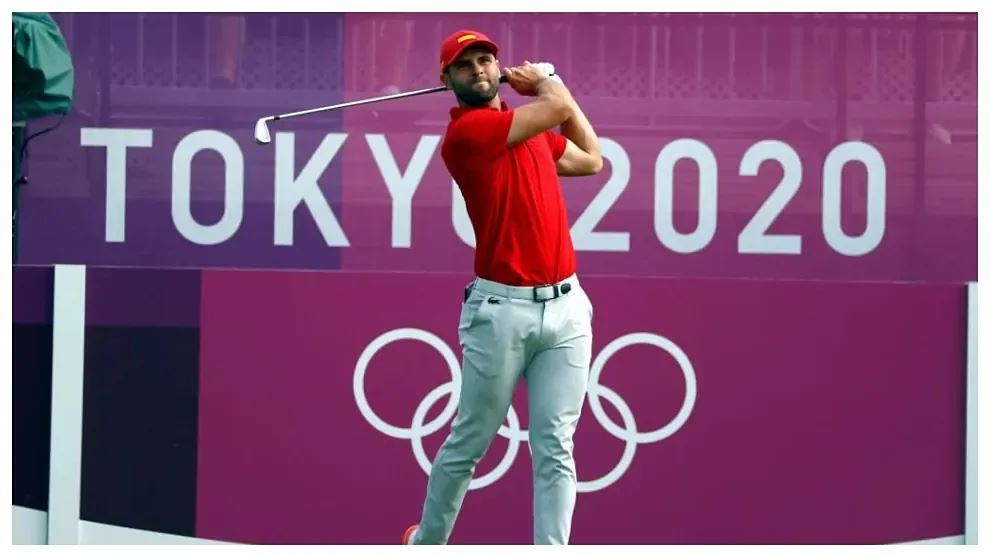The History of Golf in the Olympics: From 1900 to Today
Posted by Knicks, Links, & Inks Publishing on Jun 1st 2023
Golf, a sport rich in tradition and history, has had a unique and evolving relationship with the Olympic Games. Its journey from its initial inclusion to its current status highlights the sport's growing global appeal and the shifting perspectives of the International Olympic Committee (IOC). This post explores golf's Olympic history, its hiatus, and its triumphant return to the world stage.
The Early Years: Golf's Olympic Debut in 1900

Golf made its Olympic debut at the 1900 Paris Games. This was a significant moment, as it was one of the few sports open to both men and women at the time. The tournament featured top golfers from around the world, with Charles Sands of the United States winning the men’s competition and Margaret Abbott of the United States winning the women's competition.
Key Highlights:
- First Inclusion: The 1900 Paris Games marked the first time golf was included in the Olympics.
- Winners: Charles Sands and Margaret Abbott became the first Olympic golf champions, both hailing from the United States.
A Brief Appearance: The 1904 St. Louis Games
Golf was again included in the 1904 St. Louis Olympics, but this time it was only open to men. The competition saw George Lyon of Canada win the gold medal. However, after 1904, golf was dropped from the Olympic program.
Key Highlights:
- Limited Participation: The 1904 games saw fewer international participants compared to 1900, partly due to the travel difficulties of the time.
- Gold Medalist: George Lyon, a Canadian, won the men’s individual competition.
A Century-Long Hiatus: 1904 to 2016
For over a century, golf was absent from the Olympics. During this period, many believed that the sport's lack of widespread global appeal made it unsuitable for the Olympic stage. Additionally, golf's status as a professional sport further complicated its inclusion in the traditionally amateur Olympic Games.
Reasons for Hiatus:
- Global Popularity: Golf was not yet a universally popular sport, with limited participation outside of Europe and North America.
- Amateur Status: The Olympic movement's initial focus on amateurism conflicted with the professional nature of competitive golf.
The Push for Reinstatement: Growing Popularity and Advocacy
As golf's popularity grew worldwide, major golfing organizations such as the PGA Tour and the European Tour began advocating for its return to the Olympics. They argued that inclusion in the Olympics would help grow the sport, attract new fans, and provide a platform for the world's best golfers to compete on a global stage.
Key Factors:
- Global Growth: The increasing number of golfers and golf courses around the world.
- Organizational Support: Strong advocacy from leading golf organizations and players.
The Triumphant Return: 2016 Rio de Janeiro Games

After more than a century, golf returned to the Olympics at the 2016 Rio de Janeiro Games. This marked a historic moment for the sport, with both men's and women's tournaments included. The competitions were highly competitive and showcased some of the best talents in the world.
Key Highlights:
- Historic Return: Golf's inclusion in the 2016 Olympics ended a 112-year absence.
- Winners: Justin Rose of Great Britain won the men’s competition, while Inbee Park of South Korea won the women's competition.
Continuing Presence: 2020 Tokyo Games and Beyond

Golf was included again in the 2020 Tokyo Olympics, despite the challenges posed by the COVID-19 pandemic. The event was held without spectators, but it still featured thrilling performances and intense competition. The inclusion of golf in the Tokyo Games reaffirmed its status as a valued Olympic sport.
Key Highlights:
- Pandemic Challenges: The Tokyo Games were unique due to the absence of fans, yet the competition remained fierce.
- Winners: Xander Schauffele of the United States won the men’s competition, while Nelly Korda of the United States won the women's competition.
The Future of Golf in the Olympics
The successful reintegration of golf into the Olympic Games has sparked discussions about its future. As the sport continues to grow in popularity globally, it is likely that golf will remain a staple of the Olympics for years to come. The IOC and golfing organizations are committed to ensuring that the sport continues to thrive on the world stage.
Future Prospects:
- Continued Inclusion: Golf is expected to remain an Olympic sport, with future games providing more opportunities for the sport to shine.
- Global Growth: The visibility of golf in the Olympics will likely contribute to its growth and popularity worldwide.
Golf's journey in the Olympics, from its debut in 1900 to its reintroduction in 2016, reflects the sport's evolving status and global appeal. The sport's successful return to the Olympic stage has not only honored its rich history but also paved the way for its future growth. As we look forward to future Olympic Games, golf's presence will undoubtedly continue to inspire and captivate fans around the world.
